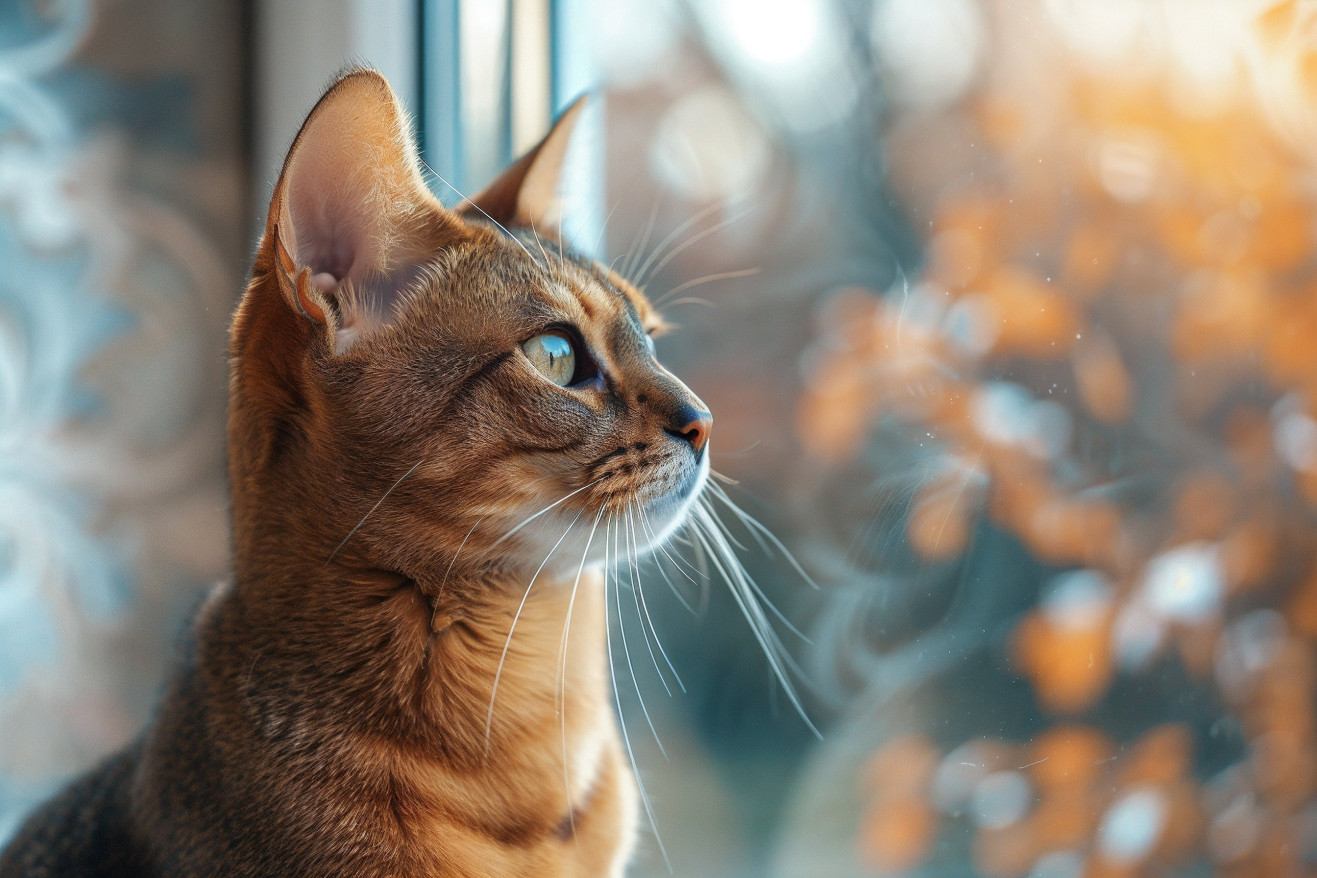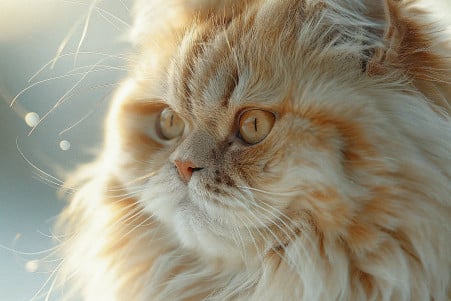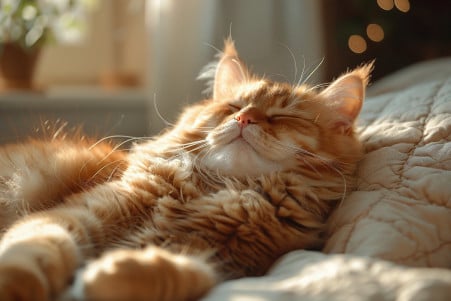Are Cats Grudge Holders? A Look at Cat Memory and Behavior
15 February 2024 • Updated 14 February 2024

Cats are often described as mysterious, but does that mean they hold grudges? While cats don’t hold grudges in the way humans do, they do have good memories. Cats can remember past events and experiences, and they can remember if something bad happened to them. However, instead of holding a grudge, cats’ memories can cause them to be cautious or avoid certain situations.
Cats can also learn to overcome their negative memories with positive reinforcement, although this can take a few days or even weeks.
This article will take a closer look at these nuances of cat behavior by drawing on the expertise of animal behaviorists and reviewing research on cat memory and learning. To determine whether cats’ reactions to past negative experiences can be considered grudge-holding, it’s important to first understand the nature of animal emotions and behavior modification.
We will also explore how negative experiences can impact cats and how they can recover from them, offering a well-rounded look at the feline psyche.
Do cats hold grudges?
How Long Can Cats Remember?
Cats are known for their intelligence, and their memory is an important part of their ability to learn and thrive. Wikipedia explains that cats are able to solve problems and adapt to their environment, and this is made possible by their memory, which is more flexible than that of other animals.
Meanwhile, Fear Free Happy Homes says that cats have 300 million neurons in their cerebral cortex, which is responsible for memory, decision-making, and problem-solving, and this is more than dogs have.
According to Catster, the cat memory span is long, and cats can remember people and events for years. Their spatial memory is especially important for remembering hunting locations and how to get around in their environment.
These abilities are made possible by the cat brain’s hippocampus and amygdala, which are similar to those in humans. While the human encephalization quotient (a measure of brain size relative to body mass) is much higher, the structural similarities suggest that cats process memories in ways that are similar to humans, although less complex.
This scientific information about cat memory is important when considering whether cats can hold grudges. Fear Free Happy Homes says that cats use episodic memory to remember events and places, and this can affect how they act around people who are associated with these memories.
However, this doesn’t mean that they feel human emotions like resentment or grudge-holding. Instead, the differences in the way memories are processed show that cats interact with the world in complex ways that are unique to their species, and this makes us wonder about their emotional lives.
The Emotional Lives of Cats: Do They Hold Grudges?
As we explore the emotional landscape of cats, we come to a question that has long been of interest to scientists and pet parents alike: do cats feel emotions in a way that can be compared to human emotions, like holding a grudge?
While cats can’t tell us directly how they feel, there is evidence that can help us understand what their emotional lives are like. Animals have been the subject of emotional research for many years, but it’s important to note that animal emotions can’t be directly compared to human emotions, according to Wikipedia.
That said, the idea that animals have emotions is becoming more widely accepted in the scientific community, and it’s now generally agreed that animal emotions are complex, even if they aren’t the same as human emotions.
According to The Guardian, animals have been shown to experience a wide range of emotions, and this is backed up by evidence of animals’ ability to recognize their own pain and take steps to alleviate it, such as protecting an injured part of their body.
In addition, animals have been shown to have cognitive biases, and this is true of cats, and these biases are thought to be a sign of underlying emotions, according to Wikipedia.
When it comes to the possibility of cats holding grudges, it’s important to remember that animal emotions can’t be equated with human emotions.
While we can make inferences about what animals are feeling based on their behavior and physiology, we can’t know what their subjective experiences are, according to Science News.
This means that while cats may act in ways that look like they’re holding a grudge, it’s more accurate to say that they’re acting in ways that are protective and that have been shaped by their memories and experiences, rather than emotions.
Untangling the Shadow of Fear: How Cats Behave After Negative Experiences
Cats are known for their sensitivity, and it’s not surprising that negative experiences can have a lasting impact on their behavior. A paper in ScienceDirect on problematic behaviors in cats found that fearfulness, which is often the result of poor socialization or coming from a shelter, was one of the most common reasons for aggression and overgrooming.
These behaviors are a clear sign of the emotional complexity of the aftermath of a negative experience for cats. How long and how intense their reactions are depends on the cat and the experience.
The Merck Veterinary Manual explains that fear and anxiety can lead to aggressive or withdrawn behaviors, which could be mistaken for holding a grudge. Cats will eventually overcome the emotional responses to negative stimuli through desensitization and counterconditioning, although some may need drug therapy to help them cope with their fear.
In a paper, Gary M. Landsberg explains that it’s important to figure out the specific triggers and then provide a safe, supportive environment to help the cat recover. If the root cause of the fear is addressed, this will help the cat reach a point of stability that will enable behavior modification to help them heal from the emotional wounds of their negative experiences.
How to Change Your Cat’s Behavior
Cats, like people, are susceptible to trauma, but with the right behavior modification, they can overcome their past experiences. Desensitization and counterconditioning, as described by the Best Friends Animal Society, are two of the most effective ways to change a cat’s negative associations.
Desensitization involves slowly reintroducing the cat to the thing that scares it while making sure the cat is never pushed too far. Counterconditioning involves pairing the thing that scares the cat with a positive experience so that the cat learns to like it.
Behavioral expert Dr. Julia Albright says that in her experience, as told to dvm360, that using positive, proactive measures is more effective than using punishment to change a cat’s behavior. This means that experts work to get to the root of the problem, make sure the cat is mentally stimulated, and use positive reinforcement.
Dr. Albright recommends that play sessions are kept short and that changes are made to the cat’s environment to discourage negative behaviors.
Cats’ avoidance behavior after a negative experience is a learned response to protect themselves, not a sign that they’re holding a grudge. With time, patience, and a consistent application of behavior modification, cats can overcome their negative experiences, often in as little as a few weeks.
Not only will this help with the cat’s negative behaviors, but it will also help to strengthen the bond between the cat and its owner, creating a more peaceful home for everyone.
What We’ve Learned About Cat Grudges: A Summary
In our exploration of whether cats hold grudges, we’ve found that while cats do have good memories, their behavior is not indicative of holding a grudge. The nature of feline memory and the role of emotional states in their lives are important to understanding their behavior.
While cats may avoid or approach situations with caution based on past negative experiences, this is a result of their instinct to survive, not their ability to hold a grudge.
This is important when it comes to behavior modification, where cats can be helped to overcome past negative experiences, showing that cats can learn and change their behavior, not that they can hold a grudge. It also shows that cats have a complex emotional life, and while there are some similarities between human and feline emotions, there are also important differences.
In summary, it’s clear that the feline mind is more complex than it may seem at first glance. The depth of their memory, the role of their emotional states, and their ability to change their behavior all require further study and understanding. By understanding the complexity of cat behavior, we can take a more empathetic and informed approach to our relationships with our cats.


